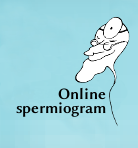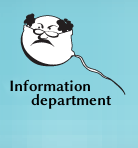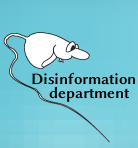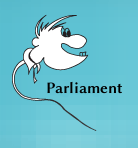Reproductive medicine
Medicine is not an exact science. It is normal for there to exist more than one possible solution, each with its own limitations and risks. Doctors should explain all the possible alternatives and recommend the most appropriate for you. Two equally capable doctors might interpret the same diagnostic conclusions differently and recommend different treatment options – and yet these differing opinions may be equally valid. The final word should always belong to the patient. This means that you should always look for information on your own, ideally from various different sources.
Reproductive medicine involves several medical (gynecology, andrology, genetics, immunology, endocrinology, etc.) and non-medical (law, ethics, psychology) disciplines. It is important that doctors and patients all have an overview of all areas involved.
The most accessible, serious, and sometimes sufficient source of information for providing an overview of the diagnosis and treatment of infertility are websites of assisted reproduction centers. I recommended the following approach: choose a couple of them (for instance, those that are closest to where you live) and study them in detail. This should give you a basic, but quite solid, overview. Then look over the others. Since by now you should have a pretty decent overview of the possibilities, it should be enough to scan these for anything else of interest. You will find that the website differ in minor details, but this should give you a fuller picture of reproductive medicine, in particular assisted reproduction. A list of Czech assisted reproduction centers can be found here.
Other possible sources of information are the websites of pharmaceutical companies involved in providing infertility treatments (or websites sponsored by them), the websites of medical societies, the websites of private medical practices... and last but not least, the websites of non-profit organizations.
However, few sites carry information on the psychosocial aspects of having to use the sperm or egg or embryo from a donor. For more information, visit the Gamete donation section.
An excellent source of information are the websites of international professional organizations. Another interesting source are websites of international non-profits. Adam will try his best to translate the most important texts. A constantly update list can be found here.
Treatment is not a question of how you do it but what medications you use. Have a look at my information on pharmaceuticals.
Reproductive medicine is more than just assisted reproduction. Some people might be helped by physical therapy. A scientifically proven technique from the Czech Republic is the Mojžíš Method.
Reproductive medicine in the Czech Republic is regulated by various laws and regulations, the most important being Act no. 227/2006. I highly recommend having a look at adoption-related legislation as well, since the two fields are closely connected.
The field of infertility treatment is full of complex ethical problems. Even people who think that they have no problems with the ethical aspects of infertility treatment should have a good overview of the situation in advance.
Websites are not the only good source of information. We also offer a constantly updated list of books and other publications.
Another good source of information is other patients. Try asking in Parliament.









